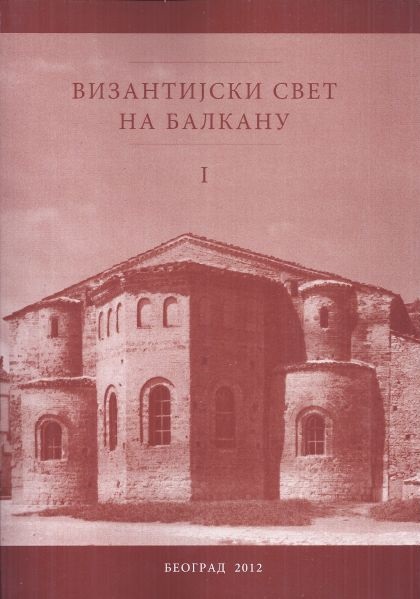Етимологије у спису Hodegos Анастасија Синаита
Etymologies in Hodegos of Anastasios Of Sinai
Author(s): Aleksandar V. Popović
Subject(s): Historical Linguistics, Philosophy of Middle Ages, 6th to 12th Centuries, Eastern Orthodoxy
Published by: Vizantološki institut SANU
Summary/Abstract: Almost nothing is known about the biography of Anastasios of Sinai. His identification with Anastasios, the Patriarch of Antioch from the 6th century is today rejected. All that we know about him is that he was a monk on Mt. Sinai during the second half of the 7th century and that he died shortly after the year 700. A great number of writings have been preserved under his name, but today most of them are considered unauthentic.
'Οδηγος' is his most famous authentic work. It is a sort of handbook for fighting heresies, in the first place Monophysitism and Monotheletism, which the author intended for his students. This was a discussion about the terms, i.e. The categories, which were to be used if the person, the believer, wanted to be orthodox. The work is divided into 24 chapters. In the second chapter Anastasios gave the definitions of the theological termini technici which he would use in his polemics. To strengthen his theological argumentation, he introduced more than 120 etymologies of different terms.
In most cases these were typical “popular etymologies”, but sometimes Anastasios was on the right track. His etymologies could be roughly divided into several groups. The first group consisted of those from the theological field: God, Trinity etc. After that came the etymologies of the names of animals, human feelings, virtues and vices, of words with the prefix ana- (e.g. anaphora), of the names of the parts of the human body, of celestial phenomena, geographical terms, as also of words from foreign languages (Latin, Hebrew).
Book: Византијски свет на Балкану I-II
- Page Range: 571-578
- Page Count: 8
- Publication Year: 2012
- Language: Serbian
- Content File-PDF

